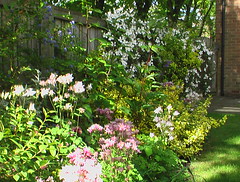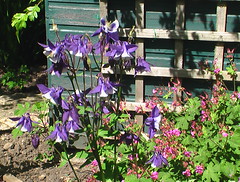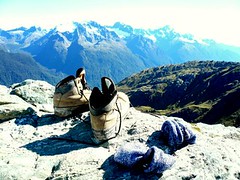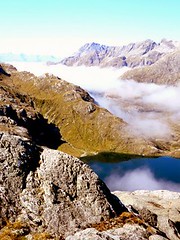A friend (thanks Heather) sent me the details of this site. Becta is an organisation which aims to improve learning through technology and they produce some excellent publications, which often give a broad overview of an area. This one, entitled “Emerging technologies for learning[volume 2 2007] includes the following chapters:
Emerging trends in social software for education
Learning networks in practice
The challenge of new digital literacies and the ‘hidden curriculum’
How to teach with technology: keeping both teachers and students comfortable in an era of exponential change
Games in education
Ubiquitous computing

Part of my herbaceous border (for Caitlin!)








